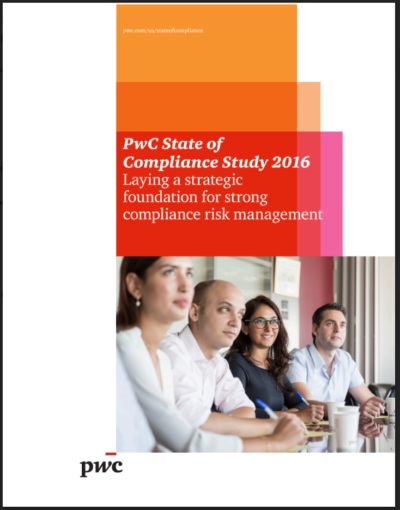For many companies, increasingly complicated regulations and a heightened level of regulatory scrutiny have resulted in more challenging — and at times inefficient — compliance and ethics management. Therefore, it’s critical for companies to establish a culture of compliance and ethics, along with management programs that that help companies comply with all necessary regulatory requirements and ethical standards.
According to PwC’s 6th annual State of Compliance study, chief compliance and ethics officers can do both by focusing on the following three key areas:
Set the tone at the top: Companies must embed compliance into both strategy and everyday operations, as only 16% of respondents indicated their employees view the CEO as the compliance and ethics champion at their organizations.
Manage a coordinated risk assessment: Companies should prioritize each individual risk area’s strengths, weaknesses, and opportunities by identifying top risks by business unit, and inform a roadmap for addressing risks over time. 54% conduct compliance and ethics-specific risk assessment activities beyond ERM efforts, of which only 21% of respondents include employee surveys.
Oversight and responsibility: Strategic involvement is essential in order to focus on compliance and ethics and monitoring activities. In fact, 20% of respondents reported that their organizations now have a stand-alone board level compliance and/or ethics committee.
Download the 2016 State of Compliance Study Now
ABOUT PWC
At PwC, our purpose is to build trust in society and solve important problems. We’re a network of firms in 157 countries with more than 208,000 people who are committed to delivering quality in assurance, advisory and tax services. Find out more and tell us what matters to you by visiting us at www.pwc.com.
PwC refers to the PwC network and/or one or more of its member firms, each of which is a separate legal entity. Please see www.pwc.com/structure for further details.











